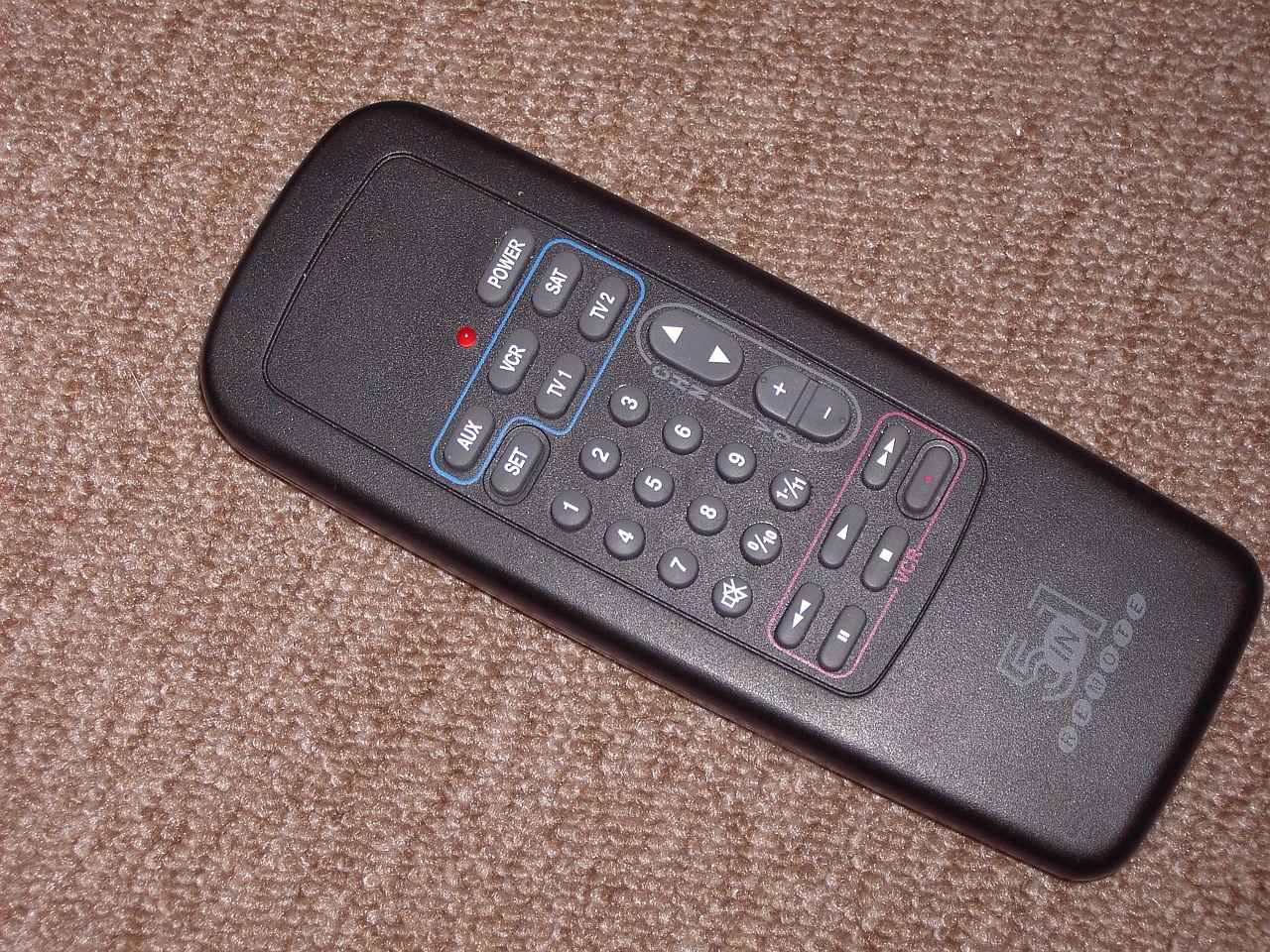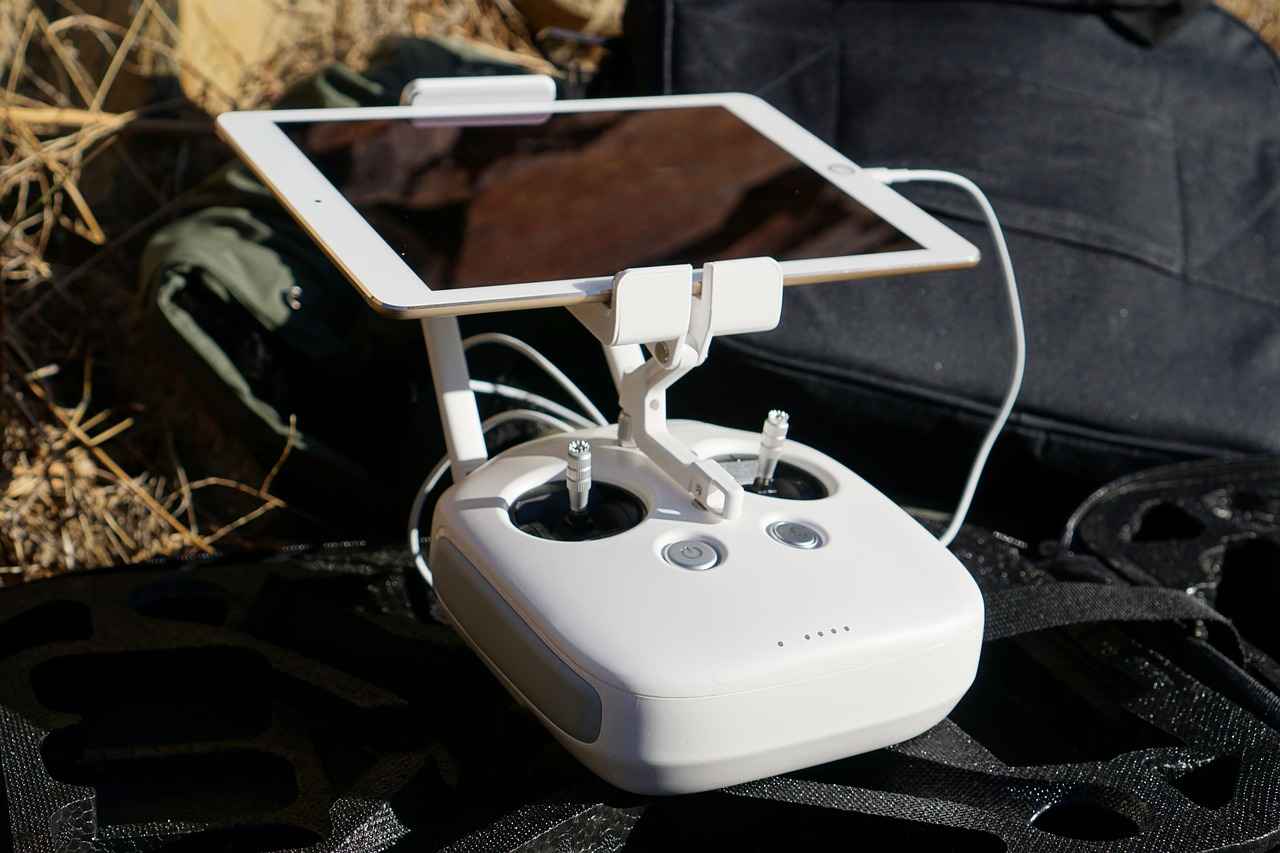This article provides essential insights and strategies for beginners seeking part-time remote customer service positions. It includes tips on where to look, how to apply, and what skills are needed.
Understanding Remote Customer Service Roles
Remote customer service jobs involve assisting customers through various communication channels such as email, chat, and phone. These roles require strong interpersonal skills and the ability to resolve issues efficiently. The benefits of working from home include flexibility, reduced commuting time, and the opportunity to work in a comfortable environment.
Key Skills for Remote Customer Service Jobs
- Communication Skills: Clear verbal and written communication is essential for understanding customer needs.
- Problem-Solving: The ability to think critically and resolve issues is vital in customer service.
- Technical Proficiency: Familiarity with customer service software can enhance your employability.
Where to Find Part-Time Remote Customer Service Jobs
Several platforms can help you find remote customer service positions:
- Job Boards: Websites like Indeed and Glassdoor specialize in remote job listings.
- Company Career Pages: Many companies post job openings directly on their websites.
Crafting an Effective Resume and Cover Letter
A compelling resume and cover letter are vital for standing out. Highlight relevant experience and tailor your application materials for remote roles.
Preparing for Remote Job Interviews
Interviews for remote positions may differ from traditional ones. Familiarize yourself with common questions and prepare to showcase your remote work skills.
Tips for Success in Remote Customer Service Jobs
Once you land a remote customer service job, maintain productivity by managing your time effectively and creating a positive work environment.
Conclusion
Finding part-time remote customer service jobs can be a fulfilling endeavor for beginners. By understanding the roles, honing essential skills, and utilizing the right resources, you can successfully embark on this career path.

Understanding Remote Customer Service Roles
In today’s digital age, remote customer service jobs have become increasingly popular, offering flexibility and the ability to work from the comfort of your home. These roles are essential for businesses striving to provide excellent customer support while keeping operational costs low.
Remote customer service representatives are responsible for addressing customer inquiries, resolving issues, and ensuring customer satisfaction. Their daily tasks may include:
- Responding to customer emails and chat messages
- Handling phone calls and providing solutions
- Documenting customer interactions in a database
- Collaborating with other departments to resolve complex issues
To excel in a remote customer service role, certain skills are crucial:
- Communication: Clear verbal and written communication is vital for understanding and addressing customer needs.
- Problem-Solving: The ability to think critically and resolve issues efficiently can greatly enhance customer satisfaction.
- Technical Proficiency: Familiarity with customer service software and tools is essential for managing customer interactions effectively.
One of the significant benefits of working from home in this field is the flexibility it offers. Employees can often set their own schedules, allowing for a better work-life balance. Additionally, remote positions can save time and money on commuting, making them an attractive option for many job seekers.
In conclusion, remote customer service roles provide a unique opportunity to engage with customers while enjoying the conveniences of working from home. By developing the necessary skills and understanding the responsibilities involved, individuals can thrive in this growing field.

Key Skills for Remote Customer Service Jobs
In the ever-evolving landscape of remote work, particularly in customer service roles, possessing the right skills is paramount for achieving success and enhancing your employability. As businesses increasingly embrace remote operations, understanding and developing specific competencies can set you apart from the competition. Below are the essential skills needed for thriving in remote customer service positions:
- Effective Communication: Clear and concise communication is vital. This includes both verbal and written skills. You must be able to convey information effectively to customers, ensuring they feel heard and understood.
- Problem-Solving: Customers often reach out for assistance during challenging situations. Having strong problem-solving skills allows you to address issues efficiently and provide satisfactory solutions, which enhances customer satisfaction.
- Technical Proficiency: Familiarity with various customer service software and tools is essential in a remote setting. Being comfortable with technology not only improves your efficiency but also helps you navigate customer inquiries seamlessly.
- Empathy: Understanding customer emotions and showing empathy can significantly improve interactions. Customers appreciate when their concerns are acknowledged and validated.
- Time Management: In a remote environment, managing your time effectively is crucial. Balancing multiple inquiries and tasks requires strong organizational skills and the ability to prioritize effectively.
- Active Listening: Mastering active listening ensures that you fully understand customer needs and concerns, allowing for more effective responses and solutions.
By honing these skills, you can enhance your employability in the remote customer service sector. Employers are increasingly looking for candidates who not only possess these competencies but can also demonstrate them in real-world scenarios. Investing time in developing these abilities will undoubtedly pay off as you pursue a rewarding career in remote customer service.
Communication Skills
Effective communication is a cornerstone of exceptional customer service, especially in a remote setting. As businesses increasingly shift to online platforms, the ability to convey information clearly and efficiently becomes paramount. This article delves into how you can enhance your verbal and written communication skills to foster better interactions with customers.
In a remote environment, the absence of face-to-face interaction makes it essential to master various communication techniques. Here are some strategies to improve your skills:
- Active Listening: Engage fully with customers by practicing active listening. This involves not just hearing but understanding the customer’s needs. Techniques such as nodding, summarizing their points, and asking clarifying questions can significantly enhance the interaction.
- Clarity and Conciseness: Aim to express your thoughts clearly and succinctly. Avoid jargon and overly complex language. Instead, use simple, direct language to ensure your message is understood.
- Empathy: Show empathy in your communications. Acknowledge the customer’s feelings and concerns, which helps build rapport and trust.
- Positive Language: Use positive language to create a more pleasant customer experience. For instance, instead of saying “I can’t do that,” you might say, “Let me find an alternative solution for you.”
Moreover, written communication in emails and chat requires a slightly different approach. Here are some tips:
- Professional Tone: Maintain a professional tone in written correspondence. Use proper grammar and punctuation to convey respect and seriousness.
- Structure: Organize your messages logically. Use bullet points and paragraphs to break up large chunks of text, making it easier for customers to digest information.
- Follow-Up: Always follow up on customer inquiries to ensure their issues are resolved. This shows dedication and commitment to customer satisfaction.
By honing these communication skills, you can significantly improve your interactions with customers, leading to enhanced satisfaction and loyalty. Remember, in customer service, every interaction is an opportunity to make a lasting impression.
Active Listening Techniques
are essential for enhancing customer interactions in any service role. By mastering these techniques, you can ensure that you fully understand customer needs and concerns, leading to improved satisfaction and loyalty.
Active listening goes beyond simply hearing what a customer says; it involves engaging with them on a deeper level. Here are some effective strategies to implement:
- Maintain Eye Contact: When communicating via video calls, ensure you are looking at the camera. This creates a connection and shows the customer that you are focused on them.
- Use Verbal Affirmations: Phrases like “I see,” “I understand,” or “That makes sense” can encourage customers to share more and feel valued during the conversation.
- Paraphrase and Summarize: After a customer explains their issue, paraphrase what they said to confirm your understanding. This not only clarifies their concerns but also demonstrates that you are actively engaged.
- Ask Open-Ended Questions: Encourage customers to elaborate on their issues by asking questions that require more than a yes or no answer. This can provide you with additional context and insights.
- Practice Empathy: Show genuine concern for the customer’s feelings and experiences. Acknowledging their emotions can help build trust and rapport.
Incorporating these active listening techniques into your customer service interactions can significantly enhance the quality of your communication. Not only will it improve your understanding of customer issues, but it will also foster a more positive experience for both parties.
Remember, effective customer service is not just about solving problems, but also about making customers feel heard and valued. By honing your active listening skills, you can create lasting relationships that benefit both you and your customers.
Clarity and Conciseness
are essential components of effective communication, especially in customer service. When you convey your messages in a straightforward manner, you significantly reduce the chances of misunderstandings. This is particularly important when dealing with a diverse customer base, where varying levels of understanding can lead to confusion.
To improve your communication skills, consider the following strategies:
- Use Simple Language: Avoid jargon and complex terms. Instead, opt for words that are easy to understand. This helps ensure that your message is accessible to everyone.
- Be Direct: Get to the point quickly. Customers appreciate when you respect their time. Start with the main point and provide additional details as needed.
- Organize Your Thoughts: Before communicating, outline what you want to say. This can be in the form of bullet points or a brief summary to keep your message structured.
- Ask for Feedback: Encourage customers to ask questions or confirm their understanding. This not only clarifies their doubts but also shows that you value their input.
- Use Visual Aids: When applicable, use images, charts, or videos to support your message. Visuals can enhance understanding and retention of information.
Additionally, practicing active listening can further enhance your clarity in communication. By fully engaging with what the customer is saying, you can respond more effectively and ensure that your message aligns with their needs.
In conclusion, being clear and concise in your communication is not just about speaking or writing well; it’s about creating an environment where customers feel understood and valued. By implementing these strategies, you can enhance your effectiveness in customer interactions and contribute to a positive experience.
Technical Proficiency
is a vital component in the realm of remote customer service roles. As the landscape of customer support evolves, the integration of technology becomes increasingly crucial. Understanding and effectively utilizing various customer service software and tools can significantly enhance your performance and productivity in a remote setting.
In a typical remote customer service environment, representatives often rely on several types of technologies to manage customer interactions efficiently. Below are some of the most commonly used tools:
- Helpdesk Software: Platforms like Zendesk and Freshdesk help manage customer inquiries, track tickets, and provide a centralized communication hub.
- Live Chat Tools: Tools such as Intercom and LiveChat allow real-time communication with customers, enabling quick resolutions to their queries.
- CRM Systems: Customer Relationship Management systems like Salesforce or HubSpot are essential for tracking customer interactions and maintaining relationships.
- Collaboration Tools: Applications like Slack and Microsoft Teams facilitate communication and teamwork among remote staff.
- Knowledge Bases: Resources such as Confluence or Helpjuice provide self-service support options for customers, reducing the volume of inquiries.
Familiarity with these tools not only aids in resolving customer issues more effectively but also enhances overall customer satisfaction. For instance, using a CRM system allows you to access customer history quickly, ensuring personalized and informed responses.
Moreover, as remote work continues to grow, companies are increasingly looking for candidates who are technologically adept. This means being comfortable with learning new software and adapting to different systems as they emerge. Therefore, investing time in developing your technical skills can make you a more competitive candidate in the job market.
In conclusion, mastering the necessary customer service software and tools is essential for anyone looking to excel in remote customer service roles. By enhancing your technical proficiency, you not only improve your chances of securing a position but also ensure that you can provide the best possible service to customers.

Where to Find Part-Time Remote Customer Service Jobs
Finding the right part-time remote customer service job can be a daunting task, especially for beginners. However, with the right resources and strategies, you can streamline your job search effectively. Below, we explore various platforms and websites that can help you uncover the best opportunities in this field.
- Job Boards: Utilize popular job boards that specialize in remote work. Websites like Indeed and Glassdoor offer extensive listings for part-time remote customer service positions. You can filter your search based on location, job type, and salary to find the best matches.
- Niche Job Boards: In addition to general job boards, consider niche sites such as Remote.co and We Work Remotely. These platforms focus specifically on remote job listings and often feature companies looking for customer service representatives.
- Company Career Pages: Many companies prefer to post job openings directly on their career pages. Research companies known for their remote work culture, such as Amazon, Apple, and Liveops. Regularly check their websites for updates on available positions.
- Social Media Platforms: Leverage social media platforms like LinkedIn and Facebook. Join groups focused on remote work or customer service jobs where members share job leads and advice.
By exploring these resources, you can enhance your chances of finding a suitable part-time remote customer service job. Stay persistent, keep your resume updated, and tailor your applications to stand out in a competitive job market.
Job Boards and Websites
In the quest for part-time remote customer service jobs, utilizing the right job boards and websites can significantly streamline your search. Below are some of the most effective platforms that specialize in remote job listings, making it easier for you to find relevant opportunities.
- Indeed: This is one of the largest job search engines globally, featuring a dedicated section for remote jobs. You can filter your search by specifying “remote” in the location field, which will yield a plethora of customer service positions.
- Glassdoor: Known for its company reviews and salary insights, Glassdoor also provides a robust job search feature. You can find remote customer service roles and gain insights into company culture from current and former employees.
- FlexJobs: This platform specializes in remote, part-time, freelance, and flexible jobs. Although it requires a subscription, the quality of job listings is often higher, and you can find many customer service roles suited for beginners.
- Remote.co: A dedicated remote job board that features a variety of job categories, including customer service. The site is user-friendly and allows you to directly apply to companies that value remote work.
- We Work Remotely: This is a popular platform for remote job seekers. It features a wide array of job listings, including customer service positions, making it a valuable resource for finding remote work.
By leveraging these platforms, you can expand your job search and increase your chances of landing a part-time remote customer service position. Remember to tailor your applications to highlight your relevant skills and experiences, making you a compelling candidate for potential employers.
Company Career Pages
are essential resources for job seekers looking to find remote customer service roles. Many companies prefer to post their job openings directly on their own websites, allowing them to manage applications more efficiently and attract candidates who are genuinely interested in their brand. Understanding how to navigate these pages effectively can significantly enhance your job search experience.
When visiting a company’s career page, start by looking for a section typically labeled as “Careers,”“Join Us,” or “Work with Us.” This section will guide you to their current job openings. Here are some tips to help you make the most of your search:
- Use Filters: Most company career pages offer filtering options that allow you to narrow down your search by location, job type, or department. Use these filters to focus on remote customer service positions.
- Read Job Descriptions Carefully: Take the time to read through job descriptions thoroughly. Look for specific requirements and responsibilities that align with your skills and experience.
- Set Up Job Alerts: If the company offers a job alert feature, sign up for notifications. This way, you’ll be informed when new remote positions become available.
- Research Company Culture: Many career pages also provide insights into the company culture and values. Understanding this can help you tailor your application and prepare for interviews.
Additionally, keep an eye out for any application tips that may be provided on the career page. Some companies may offer guidance on what they look for in candidates, which can help you stand out in your application.
In conclusion, effectively navigating company career pages is a vital skill for job seekers interested in remote customer service roles. By utilizing filters, reading descriptions carefully, and setting up alerts, you can streamline your application process and increase your chances of landing a position that fits your career goals.

Crafting an Effective Resume and Cover Letter
In today’s competitive job market, particularly for remote customer service positions, a compelling resume and cover letter are essential tools to help you stand out from the crowd. Tailoring these documents to highlight your unique qualifications can significantly increase your chances of landing an interview.
Understanding the Importance of Customization
When applying for remote customer service roles, it’s crucial to customize your application materials. This means carefully reading the job description and aligning your skills and experiences with the requirements listed. Use specific keywords from the job posting to ensure your resume passes through applicant tracking systems (ATS).
Highlighting Relevant Experience
- Even if your prior experience isn’t specifically remote, focus on transferable skills such as communication, problem-solving, and customer interaction.
- Consider any volunteer work, internships, or part-time jobs that may demonstrate your customer service capabilities.
Writing a Persuasive Cover Letter
Your cover letter should not only reiterate your resume but also convey your enthusiasm for the role. Here are some tips:
- Start with a strong opening: Grab the employer’s attention by expressing your excitement about the position.
- Showcase your skills: Use specific examples to illustrate how your background makes you a perfect fit for the role.
- Conclude with a call to action: Encourage the reader to contact you for an interview to discuss your application further.
Final Thoughts
In summary, a well-crafted resume and cover letter tailored for remote customer service positions are vital for making a lasting impression. By highlighting relevant experiences and skills, and by personalizing your application materials, you can significantly enhance your chances of success in landing an interview.
Highlighting Relevant Experience
When applying for remote customer service positions, it is essential to effectively showcase your customer service experience, even if it does not stem from a remote role. Here are some strategies to help you frame your past experiences in a way that aligns with the job requirements:
- Identify Transferable Skills: Focus on skills that are applicable to remote work, such as effective communication, problem-solving, and adaptability. Highlight situations where you successfully resolved customer issues, even if it was in a face-to-face setting.
- Emphasize Customer Interaction: Discuss your experience in dealing with customers, whether through phone calls, emails, or in-person interactions. Provide examples of how you maintained customer satisfaction and built relationships, which are crucial in remote roles.
- Quantify Your Achievements: Use numbers to illustrate your impact. For instance, mention how many customers you assisted, your success rate in resolving issues, or any customer satisfaction scores you achieved. This data can demonstrate your effectiveness in a customer service role.
- Frame Your Experience for Remote Work: Even if your past roles were not remote, you can highlight your ability to work independently. Discuss any remote tasks you completed, such as managing customer inquiries via email or using customer service software.
- Showcase Technical Skills: If you have experience with customer service software or tools, be sure to mention this. Familiarity with technology is a significant advantage in remote positions.
By framing your past roles effectively, you can demonstrate your readiness for remote customer service jobs. Remember, the goal is to connect your experience with the skills and qualities that employers are seeking in a remote candidate.
Writing a Persuasive Cover Letter
When applying for remote customer service positions, a persuasive cover letter can be your ticket to standing out among a sea of applicants. This document not only introduces you to potential employers but also allows you to convey your enthusiasm for the role and highlight your most relevant skills. Below are key techniques to craft a compelling cover letter that resonates with hiring managers.
- Personalize Your Letter: Address the hiring manager by name whenever possible. This shows that you have done your research and are genuinely interested in the position.
- Open with a Strong Statement: Start with an engaging opening that captures attention. Mention the position you are applying for and briefly state why you are a great fit.
- Emphasize Relevant Skills: Highlight skills that are particularly relevant to remote work, such as effective communication, problem-solving abilities, and technical proficiency. Use specific examples to illustrate how you have successfully utilized these skills in previous roles.
- Show Enthusiasm for Remote Work: Express your passion for remote work and how it aligns with your professional goals. Share any previous remote work experiences that demonstrate your ability to thrive in a virtual environment.
- Conclude with a Call to Action: End your cover letter by inviting the employer to contact you for an interview. Reiterate your excitement about the opportunity and your eagerness to contribute to their team.
In summary, a well-crafted cover letter can significantly enhance your chances of landing a remote customer service job. By personalizing your letter, emphasizing your skills, and demonstrating enthusiasm for remote work, you can create a persuasive narrative that appeals to potential employers. Remember, this is your chance to make a lasting impression, so take the time to tailor your cover letter to each application.

Preparing for Remote Job Interviews
is a crucial step for anyone looking to secure a position in today’s increasingly digital work environment. Unlike traditional interviews, remote interviews present unique challenges and opportunities that candidates must navigate effectively. This article delves into the key aspects of remote job interviews and offers practical tips to prepare thoroughly.
One of the main differences in remote interviews is the reliance on technology. Candidates should ensure they are familiar with video conferencing tools such as Zoom, Microsoft Teams, or Google Meet. Testing your equipment ahead of time is essential to avoid technical difficulties during the interview. Make sure your camera, microphone, and internet connection are all functioning properly.
- Choose the Right Environment: Select a quiet, well-lit space free from distractions. A professional background can enhance your presentation.
- Dress Appropriately: Even though the interview is remote, dressing professionally can help you feel more confident and make a positive impression.
- Practice Common Questions: Familiarize yourself with typical interview questions for remote roles. Prepare answers that highlight your skills and experiences relevant to the position.
Another critical aspect of remote interviews is demonstrating your ability to work independently and manage your time effectively. Employers often seek candidates who can thrive in a remote setting. Prepare examples that showcase your self-discipline, problem-solving skills, and ability to collaborate with team members from a distance.
Finally, don’t forget to prepare questions to ask the interviewer. This shows your interest in the role and helps you gauge if the company is the right fit for you. Questions about the team dynamics, company culture, and expectations for remote employees can provide valuable insights.
In conclusion, preparing for remote job interviews involves understanding the unique challenges they present and equipping yourself with the right tools and strategies. By practicing your responses, ensuring a professional setup, and demonstrating your remote work capabilities, you can significantly enhance your chances of success.
Common Interview Questions
When preparing for interviews in remote customer service roles, it’s essential to familiarize yourself with common questions that interviewers often ask. Understanding these questions and formulating confident responses can significantly enhance your chances of success. Here are some typical interview questions you might encounter, along with tips on how to answer them effectively, particularly in the context of remote work scenarios.
- Can you describe a time when you dealt with a difficult customer?
In your response, use the STAR method (Situation, Task, Action, Result) to clearly outline the scenario. Emphasize your problem-solving skills and how you managed to resolve the issue while maintaining a positive customer experience. - How do you prioritize your tasks when working remotely?
Highlight your time management skills and any tools or techniques you use, such as to-do lists or project management software, to stay organized and focused. - What strategies do you use to stay motivated while working from home?
Discuss your personal strategies, such as setting a dedicated workspace, taking regular breaks, and maintaining a routine to keep your energy levels high. - How do you handle communication with team members in a remote environment?
Explain your approach to maintaining open lines of communication, whether through video calls, chat applications, or emails, and how you ensure collaboration despite physical distance. - What do you think is the most important quality for a remote customer service representative?
Focus on qualities such as adaptability, empathy, and self-discipline, and provide examples of how you embody these traits in your work.
By preparing thoughtful responses to these questions, you will not only showcase your skills and experience but also demonstrate your readiness for the challenges of remote customer service work. Remember, the key is to be authentic and to convey your enthusiasm for the role.
Demonstrating Remote Work Skills
When applying for remote customer service positions, it is essential to effectively showcase your relevant skills during the interview process. Employers are particularly interested in candidates who can demonstrate their ability to work independently and manage their time effectively. Here are some strategies to help you convey these skills:
- Highlight Self-Motivation: Discuss instances where you successfully completed tasks without direct supervision. Provide examples of projects or responsibilities you managed independently, emphasizing your initiative and drive.
- Time Management Techniques: Explain how you prioritize tasks and manage your schedule. You can mention tools you use, such as calendars or task management apps, to stay organized and meet deadlines.
- Adaptability: Remote work often requires flexibility. Share experiences where you adapted to new challenges or changes in your work environment, showcasing your resilience and problem-solving abilities.
- Effective Communication: In a remote setting, clear communication is vital. Illustrate how you maintain regular contact with team members and supervisors through various channels, such as email, chat, or video calls.
- Technology Proficiency: Familiarity with remote work tools is crucial. Discuss your experience with software and platforms commonly used in remote customer service roles, demonstrating your technical skills.
By effectively conveying these skills during your interview, you can significantly enhance your chances of securing a remote customer service position. Remember, the goal is to illustrate not just your qualifications but also your readiness to thrive in a remote work environment.

Tips for Success in Remote Customer Service Jobs
Landing a remote customer service job is just the beginning. To truly excel in this role, it’s essential to implement effective strategies that enhance both productivity and customer satisfaction. Here are some key tips to help you thrive while working from home:
- Establish a Dedicated Workspace: Create a specific area in your home that is solely dedicated to work. This helps to minimize distractions and signals to your brain that it’s time to focus.
- Set a Routine: Establishing a daily routine can significantly improve your time management skills. Start your day at the same time, take scheduled breaks, and set specific work hours to maintain a healthy work-life balance.
- Utilize Technology Effectively: Familiarize yourself with customer service software and communication tools. Being proficient in these technologies can streamline your workflow and enhance your interactions with customers.
- Practice Active Listening: When communicating with customers, practice active listening. This involves fully concentrating on what the customer is saying, which can lead to better understanding and resolution of their issues.
- Stay Organized: Use tools like calendars or task management apps to keep track of your tasks and deadlines. Staying organized can help you manage your workload more effectively.
- Focus on Customer Satisfaction: Always prioritize the customer’s needs. Providing excellent service can lead to positive reviews and repeat business, which are crucial for success in remote customer service roles.
- Seek Feedback: Regularly ask for feedback from supervisors and customers. Constructive criticism can help you improve your skills and adapt your approach to better meet customer expectations.
By implementing these strategies, you can enhance your performance in a remote customer service role, ensuring both your success and the satisfaction of your customers.
Time Management Techniques
Effective time management is essential for anyone working in a remote setting, especially in customer service roles. With the absence of a traditional office environment, it’s easy to become distracted and lose focus. Therefore, implementing effective time management techniques can significantly enhance your productivity and overall job satisfaction.
Here are some valuable techniques to help you stay organized and prioritize tasks:
- Set Clear Goals: Begin each day by outlining your key objectives. This helps in maintaining focus and direction throughout your workday.
- Use Time Blocking: Allocate specific blocks of time for different tasks. This method encourages deeper concentration and minimizes the temptation to multitask.
- Prioritize Tasks: Utilize the Eisenhower Matrix to categorize tasks based on urgency and importance. Focus on completing high-priority tasks first.
- Implement the Pomodoro Technique: Work in short bursts of 25 minutes, followed by a 5-minute break. This technique helps maintain energy levels and reduces burnout.
- Leverage Technology: Use productivity tools and apps like Trello or Asana to keep track of tasks and deadlines. These tools can help streamline your workflow.
Additionally, creating a dedicated workspace can also enhance your productivity. Ensure that your workspace is comfortable and free from distractions, allowing you to concentrate fully on your tasks.
In conclusion, mastering is crucial for success in a remote customer service role. By implementing these strategies, you can enhance your productivity, maintain a healthy work-life balance, and ultimately provide better service to your customers.
Building a Positive Work Environment
is essential for enhancing productivity and overall job satisfaction, especially when working from home. A well-organized and inspiring workspace can significantly impact your focus and efficiency. Here are some strategies to create an optimal work environment that fosters success.
- Designate a Specific Workspace: Choose a dedicated area in your home that is solely for work. This separation helps to mentally distinguish between personal and professional activities.
- Ergonomic Furniture: Invest in a comfortable chair and desk that promote good posture. Ergonomic furniture can reduce physical strain and improve concentration.
- Minimize Distractions: Identify potential distractions in your environment and take steps to minimize them. This could include silencing your phone or using noise-canceling headphones.
- Personalize Your Space: Add personal touches to your workspace, such as plants, artwork, or motivational quotes. These elements can create a more inviting atmosphere and boost your mood.
- Good Lighting: Ensure your workspace has adequate lighting. Natural light is ideal, but if that’s not possible, consider using soft, warm artificial lights to reduce eye strain.
- Organize Your Tools: Keep your workspace tidy and organized. Use storage solutions like shelves, drawers, or organizers to keep essential items within reach while decluttering your space.
In addition to these physical aspects, it’s important to establish a routine that works for you. Set specific working hours, take regular breaks, and incorporate activities that promote mental well-being, such as exercise or meditation. By creating a positive work environment, you can enhance your focus, boost your efficiency, and ultimately achieve greater success in your remote work endeavors.
Frequently Asked Questions
- What qualifications do I need for a part-time remote customer service job?
Most remote customer service positions require strong communication skills, a knack for problem-solving, and basic technical proficiency. While formal qualifications may vary, having a friendly demeanor and a willingness to learn can take you far!
- Where can I find remote customer service job listings?
You can explore various job boards like Indeed, Glassdoor, and specialized remote job sites. Don’t forget to check the career pages of companies you’re interested in, as they often list openings there first!
- How should I tailor my resume for a remote customer service position?
Focus on highlighting your relevant experience, even if it wasn’t remote. Use action verbs and quantify your achievements to grab attention. Make sure to emphasize your ability to work independently and manage time effectively!
- What are some common interview questions for remote customer service jobs?
Expect questions about your communication style, how you handle difficult customers, and your experience with remote work tools. Be ready to showcase how you can thrive in a virtual environment!
- What tips can help me succeed in a remote customer service role?
Stay organized and manage your time wisely. Create a dedicated workspace to minimize distractions. Regularly communicate with your team and prioritize customer satisfaction to excel in your role!
